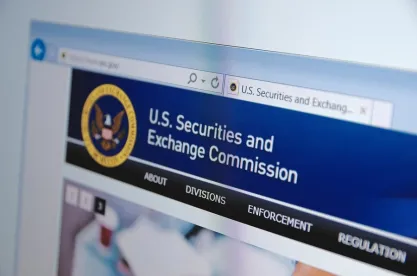The SEC recently required BitClave to return over $25 million to investors which the company raised by selling its Consumer Activity Tokens (CAT) to over 9,000 investors in an initial coin offering (ICO). BitClave was also required to pay over $3.4 million prejudgment interest and a civil penalty of over $400,000 to the SEC. BitClave planned to use the ICO proceeds to develop, administer, and market a blockchain based search platform for targeted consumer advertising. The SEC order notes that BitClave “emphasized its expectation that the tokens would increase in value, and took steps to make the tokens available for trading on third-party digital asset trading platforms after the ICO.” The SEC action was based on BitClave’s offers and sales of CAT which were deemed securities under the Howey test that were sold without a registration or an exemption from registration.
The BitClave order represents an evolution in the settlement of illegal ICOs in that in addition to disgorgement and monetary penalties, the SEC required a number of novel undertakings: the transfer of 1.32 billion CAT issued by the company in the ICO to a fund administrator; enabling the fund administrator to permanently disable the CAT; requiring BitClave to inform digital asset trading platforms that offer trading of CAT of the SEC order and to request the removal of CAT from the platforms; to publish notice of such requests on BitClave’s website and social media channels; and to not pursue any voluntary dissolution proceedings in Singapore until the company has returned the funds to investors and paid the penalties and pre judgement interest.
The BitClave order marks a stark contrast to the order in the Gladius Network matter in which no penalty was imposed. The Gladius order noted the company was evaluating the applicability of the federal securities laws to its ICO prior to speaking with the SEC, that the company self-reported to SEC, and the company informed the SEC staff that it wanted to do what was necessary to take prompt remedial steps. When considered against the penalties imposed in the Gladius matter, the BitClave matter is another example of the value of self-reporting to the SEC and the voluntary adoption of remedial measures.






 />i
/>i
